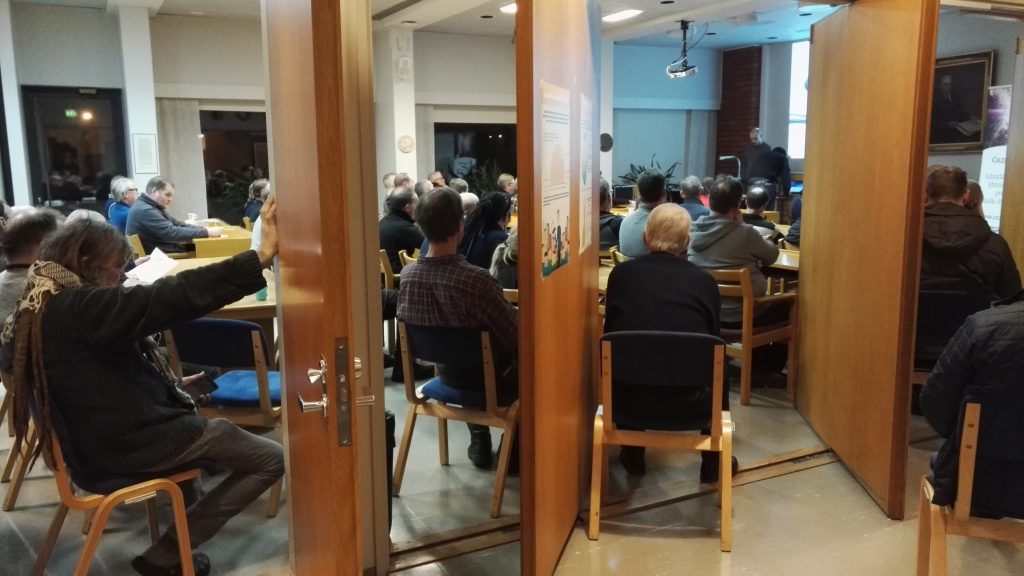In December 2018, two Tartu Regional Energy Agency (TREA) employees met with five community members of Mõisamaa village of a Väike Jalajälg, which translates to “small footprint” community. Mõisamaa village is a RENCOP community and is one of ten communities taking part in the mentorship program within Estonia. The ERDF funded Estonian Energy Cooperatives Mentor Programme supports Estonian start-ups and their development through workshops, peer-to-peer learning, and mentorship programs. The community is home to 20 people, and they are currently exploring alternative forms for the community’s future energy production and consumption. It is for this reason that TREA visited them. This informal meeting was a way for community members to establish initial contact and trust and for the TREA employees, and for the TREA employees to gather a preliminary understanding of the community’s day-to-day activities.
Currently all buildings in Mõisamaa are locally heated by boilers and
regular wood logs stoves totalling 28 stoves, with electricity being provided
by the public grid. The community’s vision is to replace oil boilers with more
sustainable solutions, varying from building renovations, to PV stations, to
bio-gas. TREA will be working with the community to develop the best solutions
to satisfy their energy needs.
Mõisamaa’s main motivations and drivers for a community energy project is to reduce their energy costs and to become independent from energy imports and the public grid. As per the discussions, the community can also envision selling their sustainably generated energy to close neighbours, however this is not their primary goal.
A follow up meeting will take place in mid December for TREA to gather
energy consumption data on the eco-village. The meeting will be with both
citizens and farmers, along with any other interested and potential buyers.
More information regarding the small footprint community can be found at http://vaikejalajalg.ee/en/




